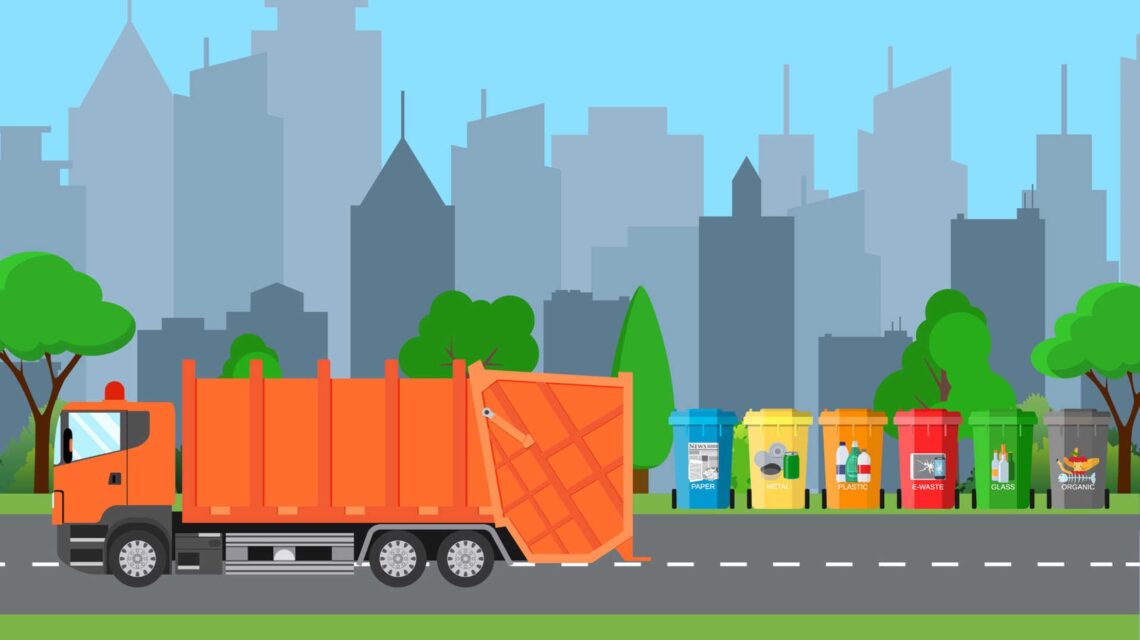Sustainable and Responsible Waste Disposal Practices in NZ
Responsible waste disposal is the ethical and environmentally conscious management of waste. These practices include recycling and proper sorting to minimise the environmental impact of discarded materials. It also involves utilising designated disposal methods to support sustainability efforts in waste management.
This article outlines various waste types and the biggest contributors while providing insights into sustainable waste disposal practices. Read on!
The Importance of Waste Management
Proper waste management is more than a regulatory obligation; it’s a commitment to environmental stewardship.
Businesses generate significant waste, contributing to pollution and ecological degradation. Without proper waste management and disposal practices, expect the escalation of environmental pollution and health hazards. This worsening could lead to the depletion of natural resources and the degradation of ecosystems.
Identifying the Biggest Waste Generators
It’s a fact that some industries generate more waste than others due to the nature of their production processes. Here are the sectors that should increase their efforts in reducing waste and implementing sustainability initiatives.
Manufacturing Industry
The manufacturing industry is a primary global waste generator, encompassing diverse sectors such as automotive, electronics, and textiles. Their production processes often result in significant amounts of industrial waste, ranging from by-products to discarded materials.
Construction Industry
The construction industry is another major player in waste generation, producing substantial waste materials such as concrete, wood, and metals during building projects. Other construction waste includes site-related waste and packaging materials for transporting construction goods.
Food Industry
The food industry contributes significantly to the waste stream with packaging materials from food products, by-products generated during food processing, and the disposal of expired or unsold items. The complex supply chains and packaging requirements also contribute to its environmental impact.
Types of Waste and Proper Disposal Methods
Different industries generate various types of waste that should undergo proper waste disposal practices.
Biodegradable Waste
Biodegradable waste encompasses organic materials that can naturally decompose through biological processes. Examples of biodegradable waste include food scraps, such as fruit and vegetable peels, leftovers, and kitchen waste.
Green waste, including lawn clippings, leaves, garden debris, and paper products like biodegradable paper, cardboard, and untreated wood, also fall under this category.
Responsibly disposing of biodegradable materials means following recommended composting methods. Composting is a natural process where microorganisms break down organic waste, transforming it into nutrient-rich soil, serving as an eco-friendly alternative to conventional waste disposal.
Recyclable Waste
Recyclable waste consists of materials that can undergo collection, processing, and transformation into new products. These include paper products like newspapers, magazines, cardboard, and office paper.
Plastics, like plastic bottles, containers, and packaging, are recyclable. Glass, in the form of glass bottles and jars, and metals such as aluminium cans, steel cans, and scrap metal also fall into this category.
The most effective disposal method for recyclable waste involves utilising recycling facilities. These facilities sort and process materials to create new products, contributing to resource conservation and reduced energy consumption.
Hazardous Waste
Hazardous waste comprises materials that pose risks to human health and the environment due to their toxic, flammable, corrosive, or reactive nature. These include chemicals like pesticides, fertilisers, and cleaning agents. Additionally, batteries, including lead-acid and lithium-ion batteries, as well as oil-based paints, solvents, and medical waste, fall into this category.
Proper disposal of hazardous waste includes sending them to specialised treatment centres. These centres employ advanced processes to neutralise, contain, or destroy hazardous materials. The goal is to prevent potential harm to the environment and human health.
Electronic Waste or E-Waste
Electronic waste, or e-waste, refers to discarded electronic devices and their components. Examples of e-waste include computers (desktops, laptops, and peripherals), mobile devices (smartphones, tablets, and accessories), appliances (refrigerators, washing machines, and microwaves), and entertainment electronics like TVs, DVD players, and gaming consoles.
E-waste contains hazardous materials, and proper disposal is essential to prevent environmental contamination. Certified e-waste centres facilitate the safe disposal of electronic devices, employing environmentally friendly processes to recover valuable materials and minimise the polluting impact of hazardous components.
Aside from identifying different waste products and following industry-mandated waste management practices, businesses should do their part.
Role of Businesses in Waste Disposal Management
Corporate Responsibility Matters
Companies must invest in sustainable waste management practices, demonstrating commitment to environmental wellbeing and gaining the trust of environmentally conscious consumers.
Market Impact
Beyond ethical considerations, waste management practices influence market dynamics. Consumers increasingly favour businesses with eco-friendly initiatives. Adopting sustainable waste disposal practices helps the environment and enhances a company’s market reputation. This advocacy can lead to increased customer loyalty and positive brand perception.
Regulatory Compliance
Implementing effective waste management practices ensures companies comply with New Zealand environmental laws. Commitment to these guidelines fosters a responsible and law-abiding corporate image.
Innovation in Waste Reduction
By investing in research and development, companies can discover and implement new technologies and practices that minimise waste generation throughout their production processes.
A business’s dedication to sustainable waste practices benefits the environment and shapes consumer trust, market dynamics, and a future where corporate responsibility is valued. Prioritising responsible waste management is integral for fostering a more sustainable and environmentally friendly global landscape.
These endeavours hold the promise of a better future for generations to come.

